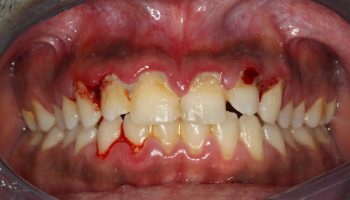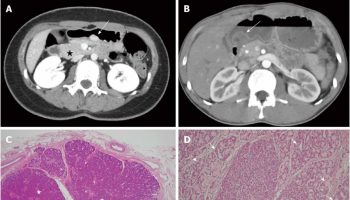What is virilization
Virilization is a condition in which a female develops male characteristics associated with male hormones (androgens) or when a newborn has characteristics of male hormone exposure at birth.
Virilization is caused by excess production of androgens usually because of a tumor in or enlargement of an adrenal gland or a tumor in an ovary or abnormal hormone production by the ovaries.
Virilization symptoms include excess facial and body hair, baldness, acne, deepening of the voice, increased muscularity, and an increased sex drive.
The body changes make it easy for doctors to recognize virilization, and the dexamethasone suppression test can help doctors determine the cause.
Treatment of virilization depends on the cause. The adrenal gland that contains the tumor is surgically removed, although sometimes drugs can reduce the excess hormone production.
What causes virilization
The most common cause of virilization is an enlargement of the hormone-producing portions of the adrenal cortex (adrenal hyperplasia). Sometimes the cause is a hormone-producing tumor (adenoma or cancer) in the gland. Occasionally, virilization occurs when a cancer outside the adrenal gland produces androgens. This cancer is likely to be a tumor of the ovaries, although occasionally overactivity of androgen secretion by the ovaries may occur in later life. Athletes who take large amounts of androgens (anabolic steroids) to increase their muscle bulk may develop symptoms of virilization. Enlargement of the ovaries due to certain types of cysts may cause virilization, but such cases are almost always mild. Sometimes, a congenital abnormality in an enzyme (a protein) in the adrenal glands can also cause virilization. Such an abnormality is often diagnosed in childhood or adolescence and is termed congenital adrenal hyperplasia.
Virilization may be caused by:
- Excess testosterone production
- Use of anabolic steroids
In newborn boys or girls, virilization may be caused by:
- Certain medicines taken by the mother during pregnancy
- Congenital adrenal hyperplasia (CAH) in the baby or the mother
- Other medical conditions in the mother (such as tumors of the ovaries or adrenal glands that release male hormones)
In girls who are going through puberty, virilization may be caused by:
- Polycystic ovary syndrome (PCOS)
- Certain medicines, or anabolic steroids
- Congenital adrenal hyperplasia
- Tumors of the ovaries, or adrenal glands that release male hormones (androgens)
In adult women, virilization may be caused by:
- Certain medicines, or anabolic steroids
- Tumors of the ovaries or adrenal glands that release male hormones
Virilization symptoms
Signs and symptoms of virilization in a female often depend on the level of testosterone in the body.
Virilization symptoms also depend on the sex and age of the person affected.
Symptoms of virilization include excess facial and body hair (hirsutism), baldness, acne, deepening of the voice, increased muscularity, and an increased sex drive. In women, the uterus shrinks, the clitoris enlarges, the breasts become smaller, and normal menstruation stops.
In men, the excess adrenal hormones may suppress gonadal function and cause infertility.
In female infants with congenital adrenal hyperplasia the genitals may resemble those of infant boys. In children, growth may accelerate. If untreated, the growth plates may close prematurely and short stature may result. Affected boys may experience premature sexual maturation.
Low testosterone level (common):
- Thick, dark facial hair in the beard or mustache area
- Increase in body hair
- Oily skin or acne
- Irregular menstrual periods
Moderate testosterone level (uncommon):
- Male-pattern baldness
- Loss of female fat distribution
- Decreased breast size
High testosterone level (rare):
- Enlargement of the clitoris
- Deepening of the voice
- Male muscle pattern
Virilization diagnosis
The combination of body changes makes virilization relatively easy for doctors to recognize. A test can determine the level of androgens in the blood.
Tests may include:
- Blood tests to detect excess testosterone in females
- CT scan, MRI, or ultrasound to rule out tumors of the ovaries and adrenal glands
When the level of androgens is very high, a dexamethasone suppression test can help determine if the problem is coming from the adrenal glands and whether the problem is an adenoma or adrenal hyperplasia. If the problem is adrenal hyperplasia, dexamethasone prevents the adrenal glands from producing androgens. If the problem is an adenoma or cancer, dexamethasone reduces androgen production only partially or not at all.
Doctors may do computed tomography (CT) or magnetic resonance imaging (MRI) to obtain a view of the adrenal glands.
Virilization treatment
Treatment of virilization depends on the cause and may include:
- Surgical removal of the tumor
- Sometimes glucocorticoids
Androgen-producing adenomas and adrenal cancers are usually treated by surgically removing the adrenal gland that contains the tumor.
For adrenal hyperplasia, small amounts of corticosteroids such as hydrocortisone, generally reduce the production of androgens.





